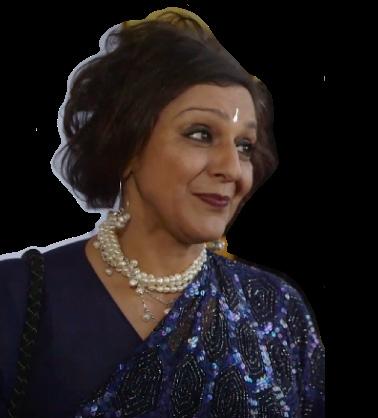
2 minute read
Refections on reimagining narratives
Jeea Chadha
One of my favourite experiences in the last two years at Oxford has been my involvement in the production of ‘A Doll’s House’ in HT22, where I was in charge of the costumes. This was not just any rendition of the renowned play; instead, it was Tanika Gupta’s rewriting of the play. She transformed Ibsen’s classic, taking it from Norway and placing it into the context of 1870s colonial India just as the independence movement was gaining momentum.
Advertisement
I loved being immersed in a story that was so classic but in a context that was so different. However, I also remember it was not the plotline or the costumes that I found most memorable about my experience; instead, I was struck by the power of this reimagined narrative in helping carve out a space in Oxford that was solely about a South Asian experience. Admittedly the context of 1870s India was not exactly relatable to the South Asian student audience. Still, there was an element of familiarity, nostalgia even, for those who had grown up with stories and relics from their grandparents and great-grandparents about colonial India and the fght for freedom. This was a story that enabled a predominantly Asian cast and crew to establish a space for themselves
Pictured: Meera Syal in order to explore South Asian storylines, history and fashion.

In the buildup to opening night, we invited Tanika Gupta to Oxford to discuss more about her adaptation. An ex-Oxford graduate herself, she revealed how she got into writing post-graduation. Specifcally, she mentioned her membership at the Asian Women’s Writers Collective, a group that boasts welcoming the likes of Meera Syal, Rukhsana Ahmad and Ravinder Randhawa to name a few. The Asian Women’s Writers Collective was founded in 1984, and its alongside women who have contested these rules”.
Many other feminists have made the same point: for as long as there has been misogyny, there has been movement against it. In the same way, it seems that for as long as there has been oppression of certain identities and a lack of relatable stories about them, there have been people of these same identities creating and consuming stories they can relate to. In fact, an example of this that has always stayed with me has been the secret language of ‘Nü Shu’ (women’s script). Originating in China’s Jiangyong county, this was a writing script used and understood exclusively by women to lament their hardships under the patriarchal system and to create stories which were more relatable than traditional Chinese narratives about women. They, too, created this space to feel represented in a society that wasn’t looking after their needs; and in a society that cared little for their stories.
Feeling seen, heard and represented in narratives not only serves to create a unique space for certain identities, but it can also increase involvement in theatre – reshaping apathy into passion and consumption.
Stories can have transformative powers; through immersing an individual in the life of someone completely different to themselves, you can build a level of empathy that can go on to change opinions and inspire meaningful conversations about societal change. I have always believed this, and for this reason, the campaigner in me always longs for more men to consume feminist narratives, more white people to consume POC narratives, the list could go on... But at the same time, perhaps it is also










